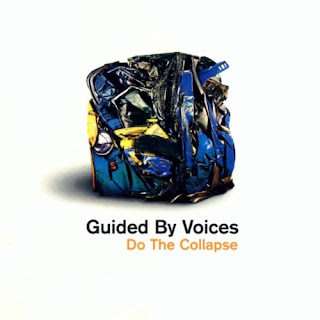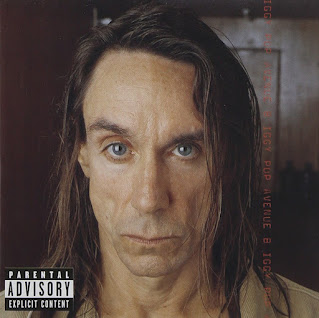Reviews originally published as a “Buzz Kuts” column, Alt.Culture.Guide™, September 1999
THE GADJITS
Wish We Never Met
Ska punks from Kansas? Although they may hail from the great American heartland, I’d challenge any reader to a blindfold taste test. Through this speaker we have your generic SoCal ska band blastin’ out attitude-ridden tunes about teen angst and getting laid. Out of this other speaker we have, well, ska songs about teen angst and getting laid. Although the grooves they’re laying down may sound like there’s sand between the notes, the Gadjits second Hellcat album, Wish We Never Met, forges its own path through the ska punk minefield. With occasionally whip-smart lyrics punctuated by a steady ska rhythm, Wish We Never Met differentiates itself from many of its California cousins by throwing in a little musical diversity. While songs like the sex fantasy “Manuhkin” or “Angel and A Devil,” an insightful look at drug abuse, showcase an intelligent lyrical slant, the ska undertones of Wish We Never Met are colored with shades of soulful R & B and a little classic pop influence. “Cleveland, Ohio” is a great song about being on the road while the album-closing “Jenny Jones” takes the talk show hostess and her colleagues to task for fucking around with the kids. Overall, the Gadjits grow enough musically with Wish We Never Met to keep things interesting without alienating any fans. It’s a good path to take and one that many ska punk outfits have gotten lost on during the past couple of years. (Hellcat Records)
GUIDED BY VOICES
Do the Collapse
Robert Pollard and his revolving Guided By Voices line-up have long enjoyed status as critic’s darlings, but have never found the edge that would allow them to break-out beyond their significant cult following and become true rock ‘n’ roll stars. Perhaps one of the alt-rock world’s best-known and least understood talents, Pollard defies expectations exactly because nobody really knows what to expect from the man. GBV has always been a vanity project, and where Pollard differs from his contemporaries is in age, outlook, and experience. Pollard possesses an enormous musical vocabulary, one that encompasses almost forty years of rock music. That he often deconstructs his influences and recreates them as his own is one of the facets of Pollard’s peculiar and unique artistic vision.
Although the last couple of GBV albums displayed an artistic weariness, a new label and a new album – Do the Collapse – go a long way towards providing Pollard with some commercial attention to go along with the accolades. The most-accessible GBV album yet, the songs on Do the Collapse are fully formed pieces, not mere glimpses of ideas or outlines. Do the Collapse provides the best look at Pollard’s considerable talents since the acclaimed Bee Thousand, the songs full of life and energy, filled with charming melodies and lush instrumentation. Although cuts like “Dragons Awake!,” “Hold On Hope,” or “Wrecking Now” are scattered with Pollard’s often-times oblique and highly symbolic wordplay, they also show a maturity of imagery and execution that make them among the best he’s written. The pop/rock soundtrack that underlines the words is as adventuresome as it is familiar. Produced by Ric Ocasek, another artist who knows his way around a pop song, Do the Collapse is a vital, creative work and one that’s a hell of a lot of fun to listen to. (TVT Records)
IGGY POP
Avenue B
One of the problems of being a cultural icon is that it becomes increasingly harder to fool the marks. So much has been said of the legend that is Iggy Pop – the violent stage antics with the Stooges, his self-destructive “Idiot” era, the Bowie years, movie stardom, MTV, and his rebirth as a buffed-up, iron humping metal master – it’s really difficult to separate fact from fiction, myth from missteps. Sitting, as we are, on the edge of the 21st century, nobody in their right mind could have predicted – not even ten years ago – that Iggy would be poised to begin his fifth decade in rock ‘n’ roll. Stranger still is that with the release of Avenue B, Iggy has transformed himself into some sort of beat poet. Huh?
That’s right – Iggy fucking Pop, the godfather of punk and founding father of heavy metal, the guy that used to roll around bare-chested on a stage littered with broken glass and flagellate himself with the mike cord – has delivered an album that owes as much to Charlie Parker and Jack Kerouac as it does to “Louie Louie” and chaos theory. Surprisingly enough, though, Avenue B works. Iggy’s baritone vox have always had a smokey room quality to them, and some of his better songs over the years have been more spoken than sung. Avenue B offers up a few no-frills rock riffs, but the main course here is a beat-infused jazzy ambience aided by the instrumental skills of Medeski, Martin and Wood. The old Iggy energy and attitude is still here, as is Pop’s penchant for highly personal and introspective lyrics. Produced by Iggy’s old Motor City pal Don Was, Avenue B presents the artist in an entirely new light, a flattering and intelligent guise for a legend not quite ready to rest on his significant laurels. (Virgin Records)




No comments:
Post a Comment